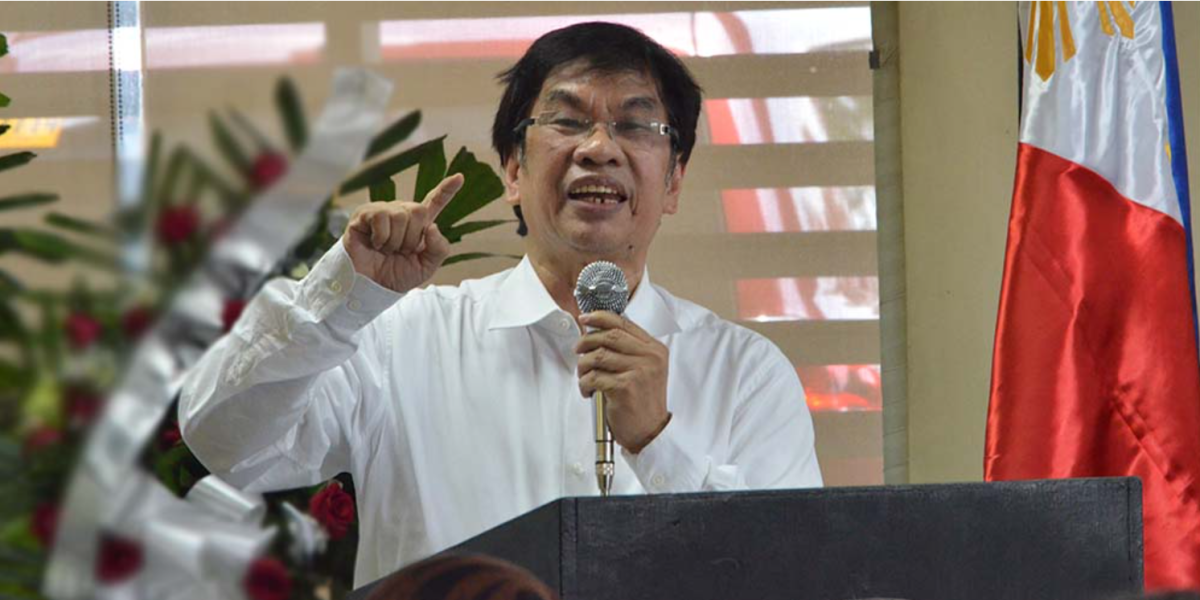Ravanera insists co-ops are automatically tax exempt
QUEZON CITY – The blame-game is on. Bureau of Internal Revenue officials say they merely implement the rules, and that they have informed their officials all over the country to do the same. The question is whether the CDA has informed co-ops.
On November 5, COOP-NATCCO Partylist Representative and Chairman of the House Committee on Cooperative Development, Sabiniano Canama, invited co-op leaders, BIR officials, and CDA officials to a meeting at the House of Representatives to discuss the issue of why many cooperatives are not issued Certificate of Tax Exemption (CTE).
And worse, some are assessed to pay taxes amounting to millions. If the co-ops paid those amounts, it would definitely lead to the closure of the co-ops.
Atty. Marissa Cabreros of the BIR fired the first salvo: “Under Joint Administrative Order 1-2019, we issued the guidelines on how CTE is processed, there should be an application for the issuance of the CTE, together with the submission of requirements for the pre-evaluation of the documents whether a cooperative will be granted tax exemption.”
Rep. Canama then asked CDA Chairman Orlando Ravanera if co-ops have been informed about the process that they have to first apply with the BIR before obtaining tax exemption.
A question answerable by “yes” or “no” was answered by the Chairman: “Way back in 2012, the CDA Board was facing no less than BIR Commissioner Kim Henares. She was asked: “Do you tax the church?” She replied “no”. “Do you require them to submit [documents]?” She said ‘No.’ So if they are the church, immediately you accept? Yes! So the question is: Why are you doing that to the cooperatives?”
He added: “So they actually ordered, Madame Kim if you know they are cooperatives, let it (the tax exemption) be automatic because it is unconstitutional if you will tax the co-ops.”
He insisted: “I think that was very clear. With regard to that matter on compliance, we have been so passionate in disseminating to the co-ops that all co-ops, more than 20,000, that they are all expecting that they will be tax-exempt because it is so provided by the Constitution. It is law. So along that line, we would like to make it categorical that if they are cooperative, they should not be anymore required to submit this and that because just like the church, they are constitutionally entitled to that highest privilege.”
And Ravanera cited the Dumaguete Cathedral Credit Cooperative case where the Supreme Court decided in the co-op’s favor, that it is indeed tax-exempt. Quoting the SC Decision, he said: “Cooperatives deserve a preferential tax treatment because of the vital role they play in the attainment of economic development and social justice. Though taxes are the lifeblood of the Government, the power of the state to charge taxes must give way to the creation and growth of cooperatives.”
Ravanera then talked about the contributions of cooperatives in social development and nation-building.
The JAO 2019-1 and MC 2019-06 detailing the CTE procedures is currently posted in the CDA website, www.cda.gov.ph
Nevertheless, the Cooperative Development Authority (CDA) e-mailed to the co-op sector on November 28 a draft position paper on the difficulties of cooperatives in obtaining the certificate of tax exemption (CTE) from the Bureau of Internal Revenue (BIR).
The five-page draft contains 1) the Constitutional provisions recognizing co-ops as instruments of social change, 2) the landmark decision of the Supreme Court in 2010 favoring the Dumaguete Cathedral Credit Cooperative 3) and the list of “demands” not to tax cooperatives.
On the Supreme Court decision, the document says: “the law grants cooperatives tax exemption and such highest privilege has been well sustained by the Supreme Court in a landmark case of DCCCO vs. Commissioner of Internal Revenue penned by Justice Del Castillo. In that case, the highest court of the land affirmed the tax exemption of the cooperatives, declaring in unequivocal terms that, “while the power to tax is a strong fundamental power of the state but such power must bow down to the principle of social justice.”
Though not addressed to any entity, the document, by default, falls on the lap of the Bureau of Internal Revenue (BIR), the tax collecting agency of Government.
The paper insists that “cooperatives are vessels of equity, and their existence is deeply rooted in community development as they are organized primarily to serve members’ needs, focusing on the provision of members’ benefits rather than profits or monetary returns to investors. This member-driven orientation makes them different from corporations and other organizations whose existence and success are measured in terms of monetary gains and, therefore service is but secondary.”
Furthermore: “cooperatives are engines of economic growth, creating products and services that have produced benefits to millions of Filipinos. Treating cooperatives as profit oriented enterprises and imposing taxes on them is not only unconstitutional, it is also anti-people as it is counter-productive in the long run.”
The “demands” are: 1) Duly registered cooperative should NOT be required for a Tax Identification Number (TIN) because by (RA 9520 Article 60 & 61) they are already tax exempt; 2) There should be no need for Certificate of Tax Exemption (CTE) as the Certificate of Registration, Certificate of Compliance and Certificate of Good Standing issued by the CDA to a duly registered cooperative are all enough; 3) Exempt co-ops from Real Property Tax in accord with the Local Government Code of 1991; 4) Uphold and respect the above mentioned laws; and 5) Recognize and support the efforts of cooperatives.

